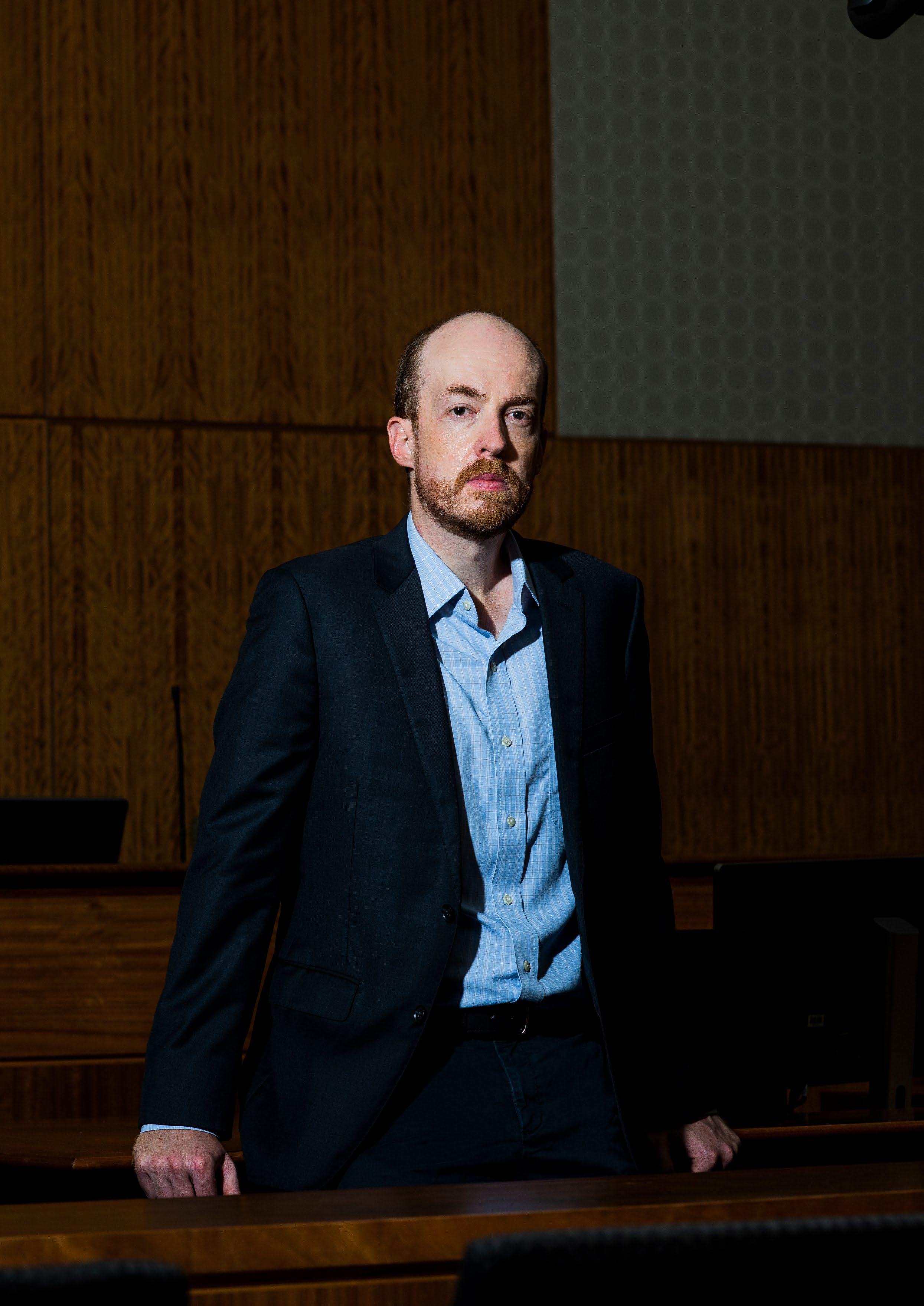
3 minute read
Arcane law in the dock
PROFESSOR JONATHAN CROWE’S 15-YEAR PURSUIT OF JUSTICE
egal philosopher Professor
LJonathan Crowe is drawing heavily on the philosophy side of his academic repertoire these days. Last year, at the height of the COVID crisis, Professor Crowe redoubled his 15-year quest to change a Queensland law that has let wrongdoers evade justice since 1899. One year and a Queensland Law Reform Commission (QLRC) report later, the law is stubbornly the same.
“You just have to accept it is going to take a long time. But it can be disappointing when you see an opportunity for change and it doesn’t happen.” Professor Crowe is talking about his push to reform Queensland’s sexual consent laws, particularly the controversial “mistake of fact” excuse in rape cases which allows attackers to walk free. Defendants can argue they “honestly and reasonably” believed the other person consented to sex, even if their victim did not. The Bond University law professor became aware of the get-out-of-jail excuse as a law student in Brisbane and has been working to change it ever since. Together with one of his former students, author and activist Bri Lee, Professor Crowe campaigned to bring the loophole to public attention in 2020, culminating in Queensland AttorneyGeneral Yvette D’Ath asking the QLRC to examine the mistake of fact defence.
“Unfortunately, the commission’s report when it came out was very disappointing because it didn’t recommend any substantive change to the law,” he says. “That was primarily because of the attitude of the legal profession - the Queensland Law Society and the bar association - which both came out publicly and opposed any change. To some extent that is justified because you don’t want to be mucking around with law, but my view is when there’s an evidence base that shows that change is needed, you need to make those changes, otherwise you have injustice in the system. I think we’ve reached that point with the rape laws in Queensland.”
The Queensland legal fraternity may not be ready for change but it could be coming nonetheless. The alleged rape of Brittany Higgins in the office of then-Defence Minister, Linda Reynolds and historic rape allegations against Industry, Science and Technology Minister, Christian Porter, which he denies, turned out tens of thousands of people to marches across Australia. The sexual abuse and harassment of women has exploded into a movement that is demanding action at political and legislative levels.
“We are getting to a point where people won’t be able to avoid taking the issue seriously and responding in a more decisive and appropriate way,” Professor Crowe says.
Confronting evidence for change can be found on a website set up by Professor Crowe and Ms Lee, consentlawqld.com. It details the cases of defendants who were acquitted because their victims were drunk, disabled, struggled with English or froze in fear.
But even a change in laws will not change societal attitudes that drive sexual assaults.
“We have to focus on what people are learning in schools and universities because that’s where these attitudes are formed,” Professor Crowe says. “Young people are also confronting challenges arising from the availability of online pornography which is shaping attitudes to sex and consent. It is very challenging to be navigating that space as a young person today.”
To help, Professor Crowe has coauthored a sexual consent toolkit in his role as Director of Research at Rape and Sexual Assault Research and Advocacy. RASARA was formed last year and fellow members include prominent law reform advocates and sexual assault survivors Saxon Mullins and Nina Funnell. It is hoped the toolkit, funded by the Queensland Government, will be taken up by schools and universities. In the meantime, Professor Crowe is returning to the trench warfare of rape law reform.
“It is such an important issue and I am very passionate about it,” he says. “Even if we did get some change I think there would still be more work to do. I certainly see myself persisting with this for a long time.”











